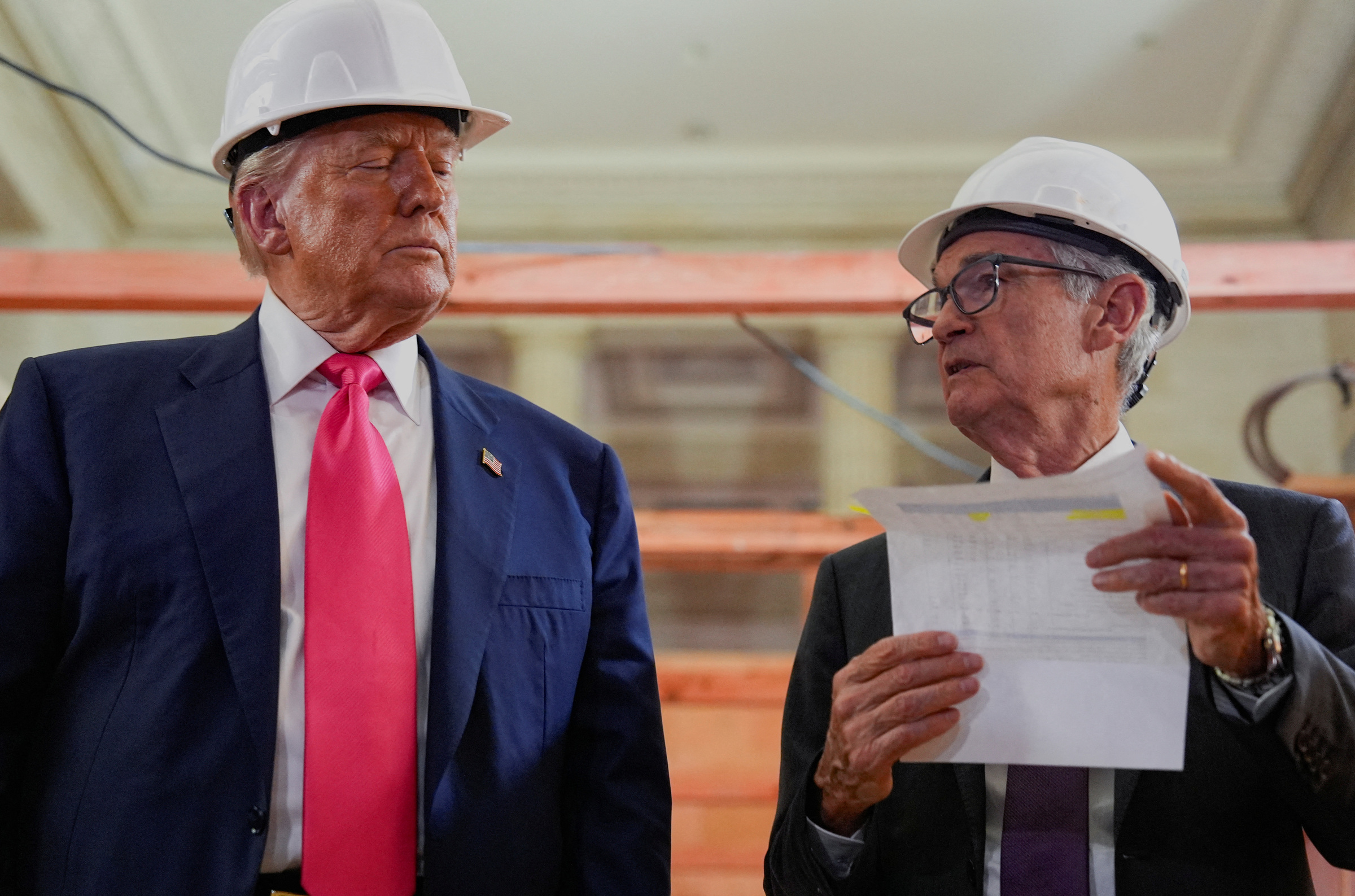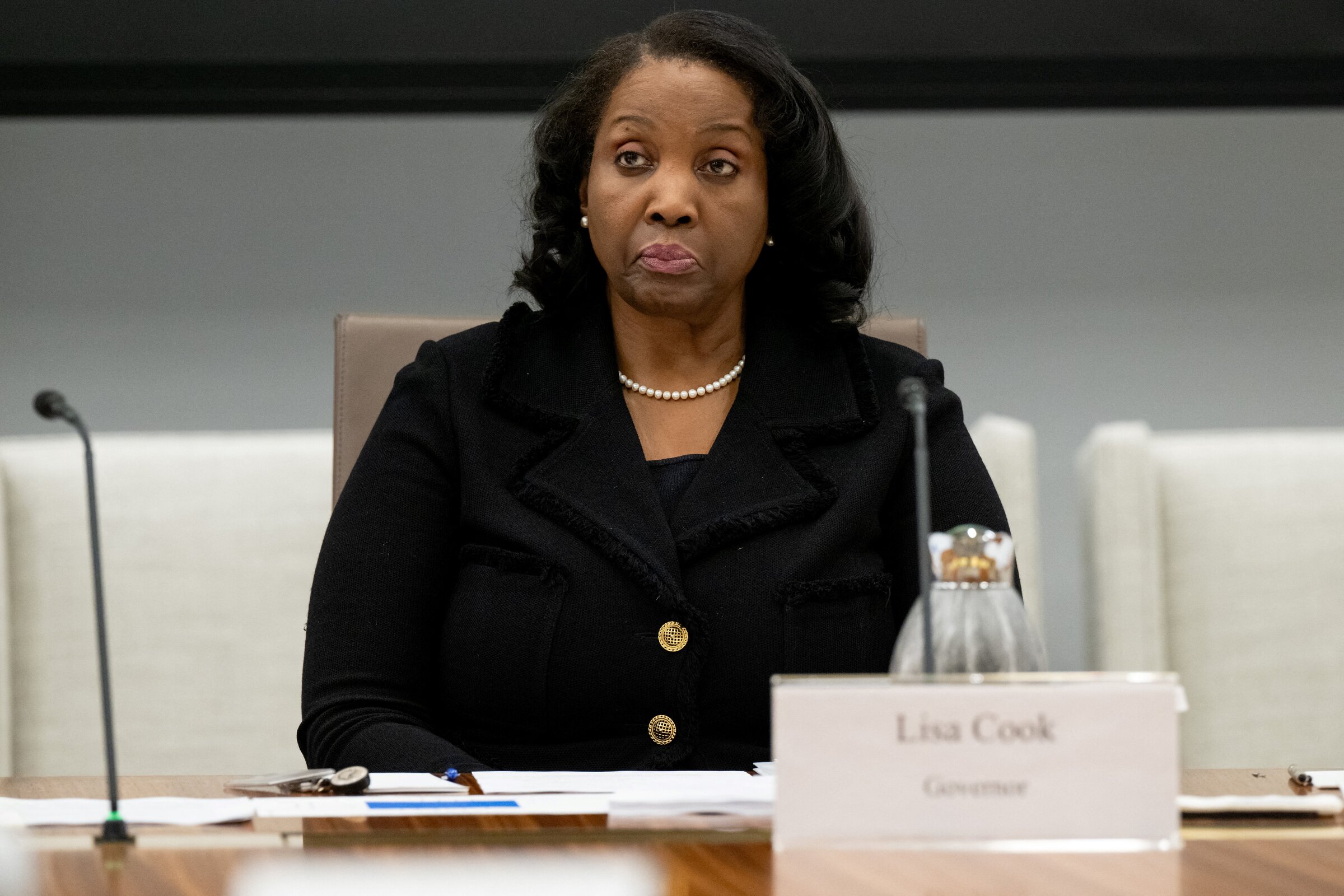For months, Federal Reserve (Fed) Chair Jerome Powell has largely ignored President Donald Trump's persistent calls for interest rate cuts. In his August 22 speech in Wyoming, Powell, while not directly addressing the Fed's independence, continued to signal his commitment to maintaining it.
"Federal Open Market Committee (FOMC) members will make decisions based solely on their assessment of the data, the economic outlook, and the balance of risks. We will never deviate from this approach," he stated.
Adam Posen, president of the Peterson Institute for International Economics, believes this was a deliberate choice, indirectly demonstrating the Fed's independence. "Not talking about independence is a way of showing they are focused on their work," he said.
The president has previously threatened to fire Powell but has never followed through. He appointed Powell in late 2017, and his term as Fed chair is set to end in about 9 months.
 |
US President Donald Trump (left) and Fed Chair Jerome Powell during a visit to Fed headquarters in Washington on 24/7. Photo: Reuters |
US President Donald Trump (left) and Fed Chair Jerome Powell during a visit to Fed headquarters in Washington on 24/7. Photo: Reuters
Powell is no stranger to Trump's attacks. Michael Strain, director of economic policy studies at the American Enterprise Institute (AEI), noted that the president criticized Powell in 2018 when the Fed raised interest rates. However, that didn't deter the agency's decision.
"The president has a long history of pressuring Powell, and the Fed chair has a long history of resisting that pressure. So it would be strange if, on his way out, he were to give in for the first time," Strain commented.
The Fed's current short-term benchmark interest rate, which influences borrowing costs for home mortgages and car purchases, stands at 4.3%. Trump has called for the agency to lower it to 1% – a level no Fed official supports.
The Fed's rate-setting committee comprises 19 members, 12 of whom have voting rights. Last week, Beth Hammack, president of the Federal Reserve Bank of Cleveland and a committee member, declared her commitment to upholding the Fed's independence. "I am intensely focused on ensuring we can deliver good outcomes for the public and trying to tune out the outside noise," she said.
According to Hammack, the Fed needs to continue combating persistent inflation, a view shared by many of her colleagues. "Inflation is too high and trending in the wrong direction. I see us moving further away from our inflation target," she explained.
Amid this backdrop, Trump has increased pressure on another senior Fed official. He has declared he will fire Governor Lisa Cook if she doesn't resign. Bill Pulte, appointed by Trump to lead the oversight agency for the two mortgage giants Fannie Mae and Freddie Mac, accused Cook of mortgage fraud when she purchased two properties in 2021.
Cook has affirmed she will not be "intimidated" into resigning and declined to comment on Trump's threat. She has not been charged. However, if she is removed, it would give Trump the opportunity to place a loyalist on the Fed's board of governors. Board members have voting rights on all interest rate decisions. The president has already nominated Stephen Miran, the White House's top economist, to replace former Governor Adriana Kugler, who resigned on 1/8.
 |
Governor Lisa Cook at a Fed meeting in Washington on 25/6. Photo: AFP |
Governor Lisa Cook at a Fed meeting in Washington on 25/6. Photo: AFP
George Vessey, a foreign exchange and macro strategist at Convera, says the renewed political pressure on the Fed is unsettling markets and risks weighing on the USD. "Cook's potential departure would amplify dovish voices within the FOMC and deepen internal divisions, adding to uncertainty about the Fed's policy path," he said.
On August 22, the Fed chair hinted at a possible interest rate adjustment in the September meeting. According to the Associated Press (AP), this will be a risky decision for the Fed, as it must weigh persistent inflation against the prospect of an improving economy in the latter half of the year. If both trends occur, an interest rate cut could be seen as premature.
Trump has urged the Fed to significantly lower interest rates, arguing that "there is no inflation" and suggesting that this would reduce interest payments on the government's $37,000 billion debt. Meanwhile, Powell has another reason for consideration: the risk of a weakening economy.
He pointed out that growth "has slowed markedly in the first half of the year," reaching only a 1.2% pace, compared to 2.5% in the same period of 2024. Labor demand has also "weakened considerably," potentially leading to increased unemployment. However, he acknowledged that tariffs have begun to increase goods prices and could further push inflation higher. This is a factor the Fed will have to monitor closely and will likely make them even more cautious in their upcoming decisions.
Overall, observers believe that regardless of how the Fed weighs its upcoming monetary policy, the agency is likely to reaffirm its long-standing independence. Economists say the Fed's independence is crucial to preventing inflation.
"In a fiat monetary system, trust is key. Even the appearance of a loss of independence or data objectivity is dangerous. In this case, it even threatens the reserve role of the dollar," said Paul Donovan, chief economist at UBS.
Phien An (according to AP, Fortune)












